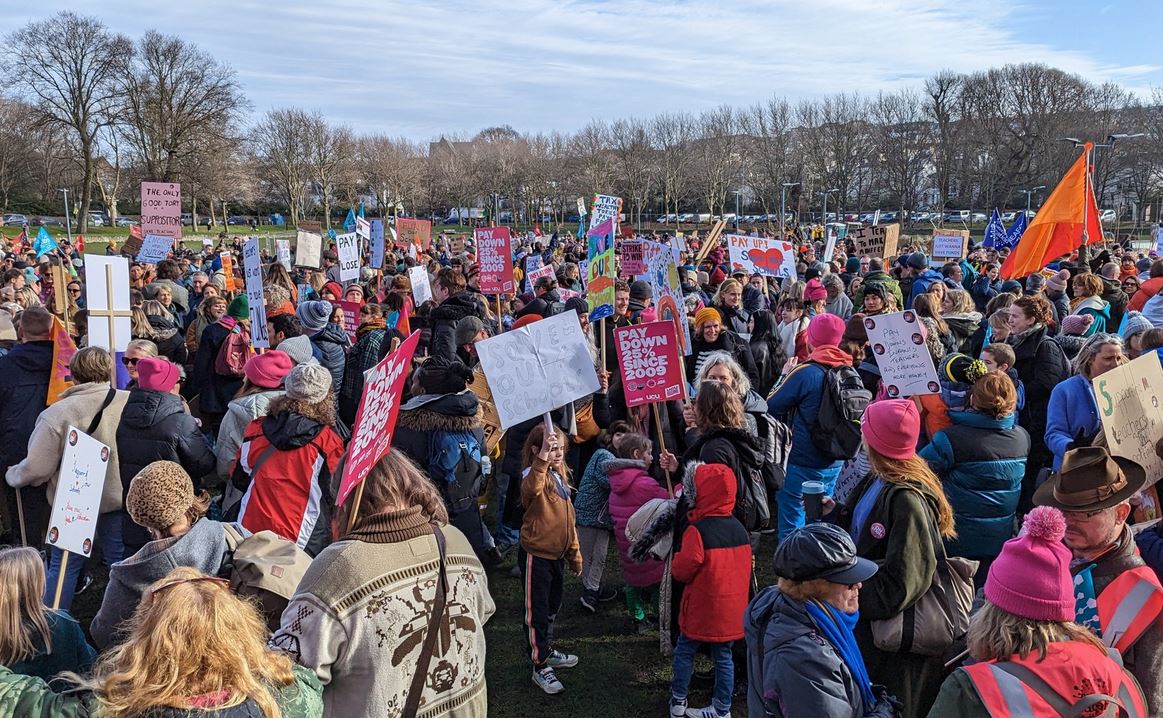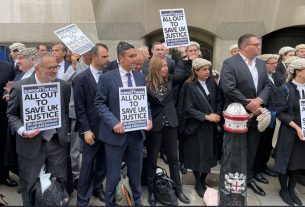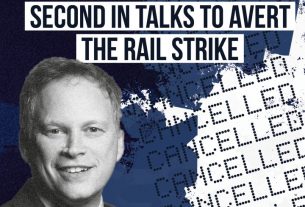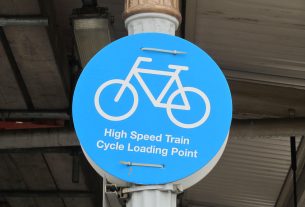Hundreds of thousands of public sector workers have vowed to continue their strikes until the government improves its pay settlements.
Half-a-million workers took part in “Walkout Wednesday” with teachers, civil servants, university lecturers, bus drivers, railway staff and security guards staging the biggest strike in the UK for more than a decade.
Schools were closed, rail services brought to a standstill and picket lines formed outside universities and museums while rallies and marches supporting the industrial action took place around the country.
Some 600 military personnel were drafted in to prop up public services hit by the strikes which Downing Street admitted would make it “very difficult for the public trying to go about their daily lives”.
The Telegraph claims a new poll shows Conservative voters are “overwhelmingly opposed” to public sector strikes which suggests Rishi Sunak “should stand firm against the unions.”
A separate Ipsos poll found that just a fifth of Tory voters backed today’s (Feb 1) joint day of action by the unions.
The findings of the polls will be a “boost” for the prime minister and are “likely to steel Mr Sunak’s resolve” to “face down” the unions’ demands, the Telegraph reports.
Strikes by railway staff, teachers, Border Force staff and civil servants are “hugely unpopular among the Tory base”, the newspaper states. However, people who voted Tory at the last election are supporting the strikes by nurses.
While Sunak’s obstinate stance towards the unions might prove popular with Tory voters, the poll showed different results for the general public which has greater support for the strikers.
The government is banking on a change in the public’s attitude towards the strikers while unions are adamant their action will continue until the government makes a fair pay offer.
The Financial Times reports that public sector pay deals announced in July averaged around 5% – lower than the private sector average “in a year when inflation peaked at 11.1%.” Civil servants “fared even worse”, the FT states, with average pay awards of just 2-3%.
“There will be more days of action,” said Robert Eagleton, a policy adviser at the Department for Work and Pensions and an official at the PCS union
Secondary school teacher Tash De Stefano-Honey said: “We will continue to go on strike until the government sorts out what is happening in education.”
The south London teacher, added. “I love being in the classroom . . . but we’re not paid adequately. The government needs to pay up.”
Strikes continue through February
Strikes continue across Britain throughout February. Aslef train drivers are striking on Friday (Feb 3) when the national network will be impacted. On Saturday, Aslef members working on the London Underground Bakerloo Line are walking out over safety concerns.
RCN (Royal College of Nursing) members will strike for 12 hours on Monday and Tuesday next week (Feb 6 and 7). They will be joined on Monday by paramedics, emergency care assistants, call handlers and other workers represented by the GMB union. Ambulance staff in parts of England and Wales, members of the Unite union, will also be taking industrial action on Monday.




